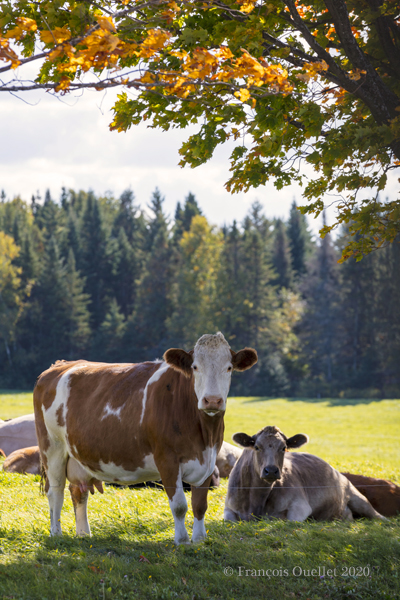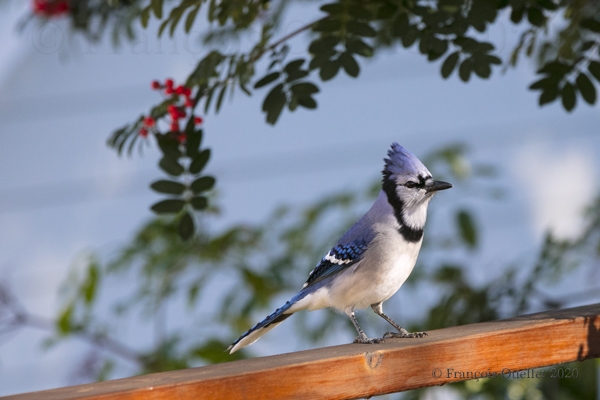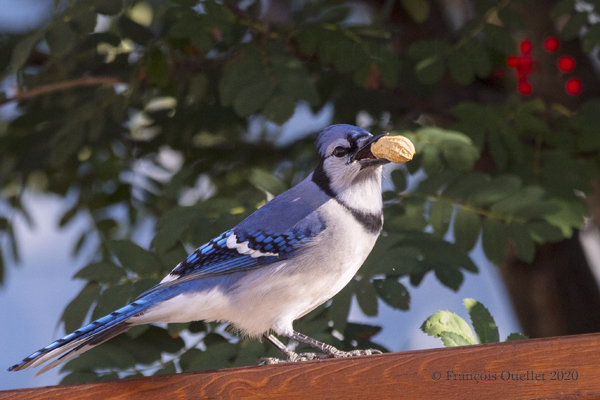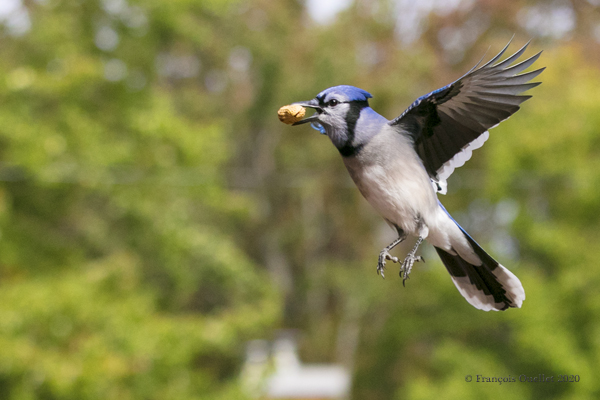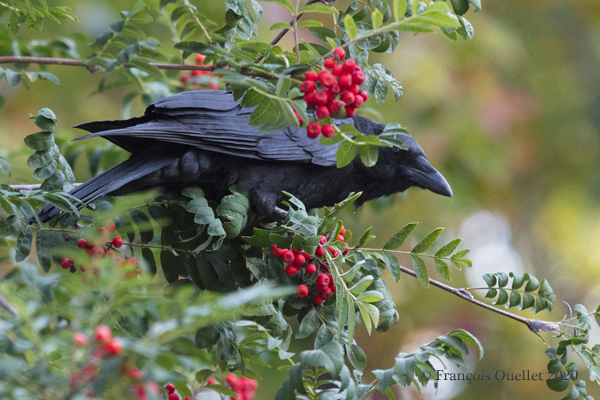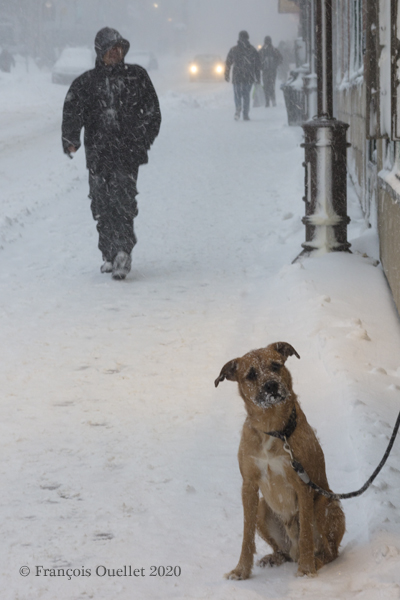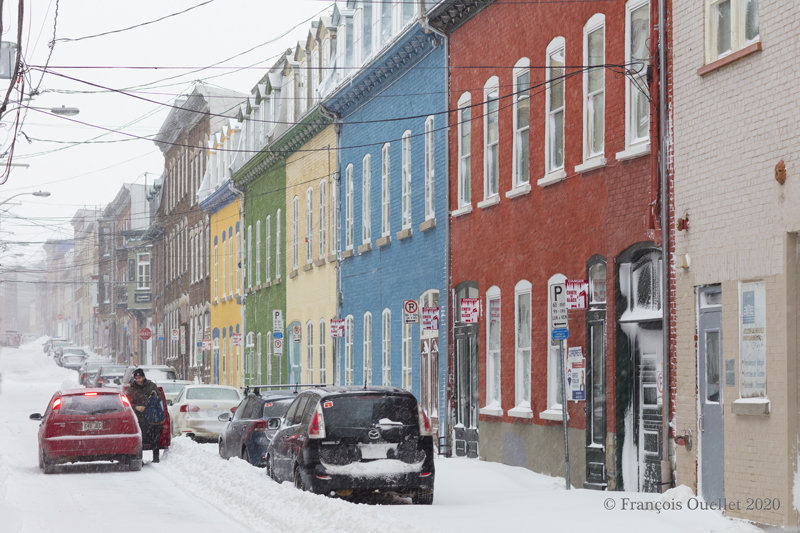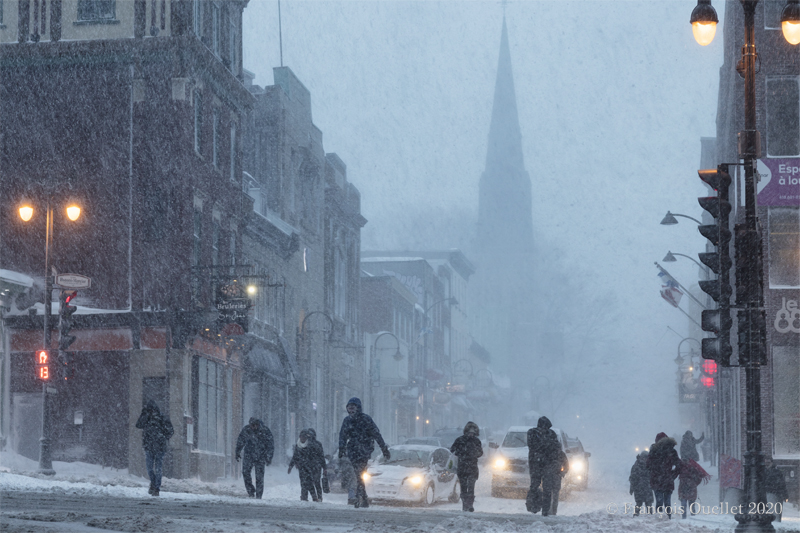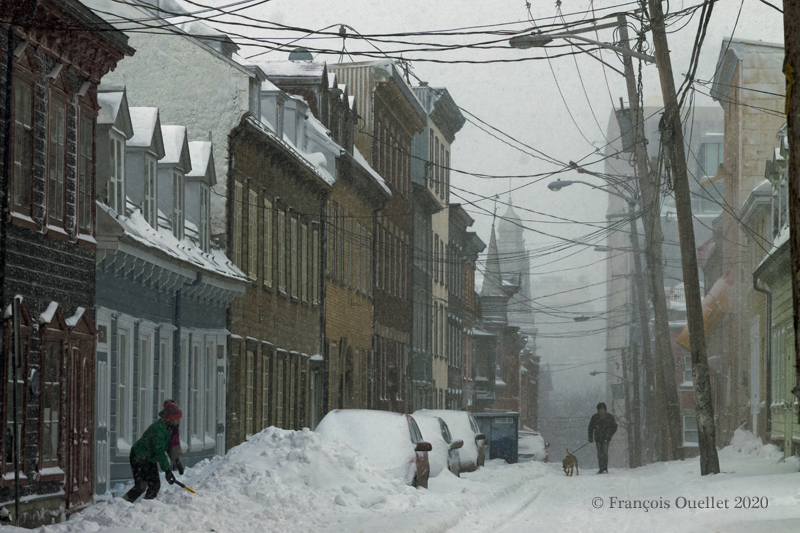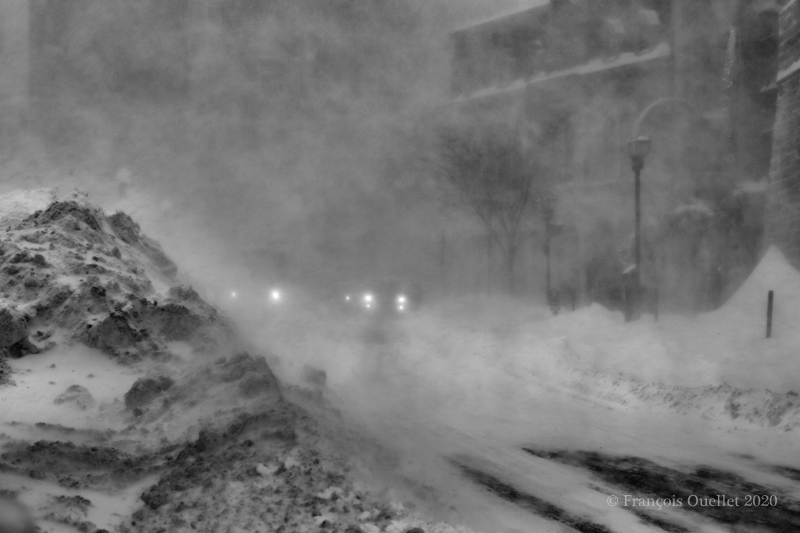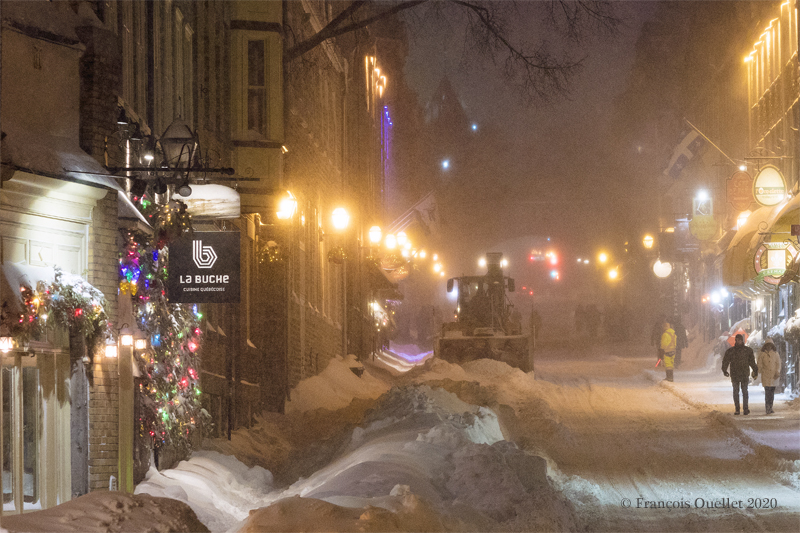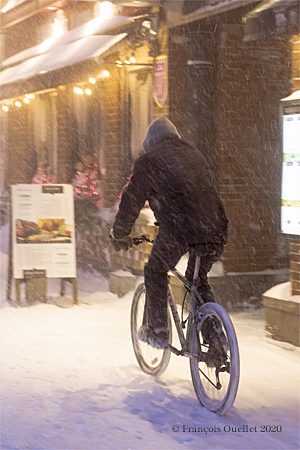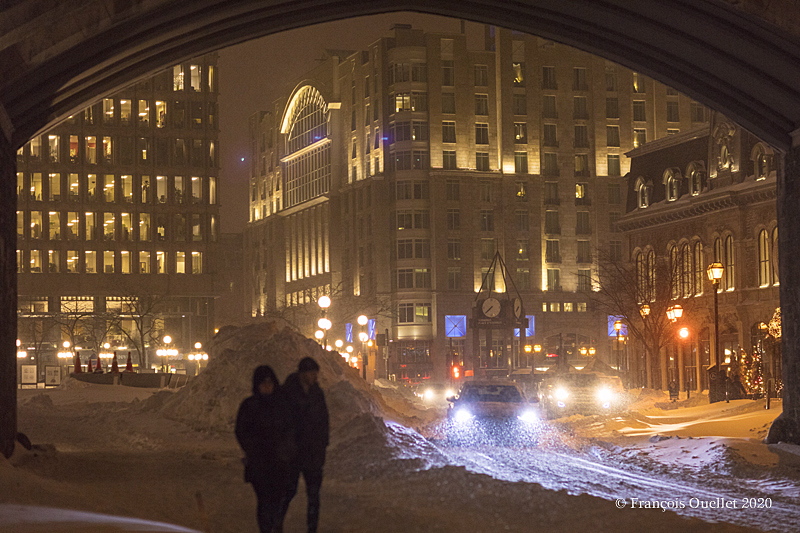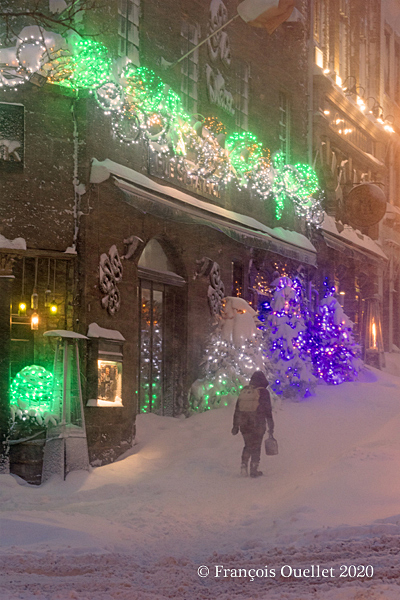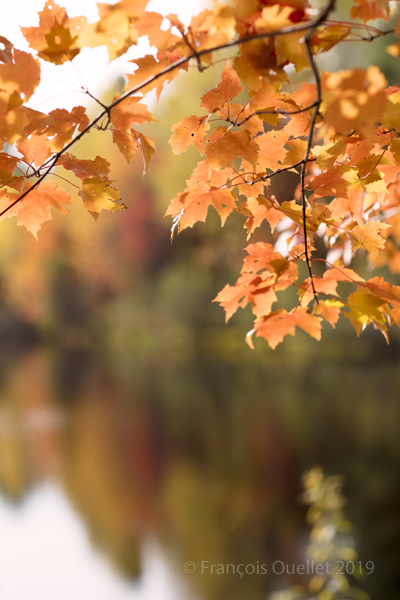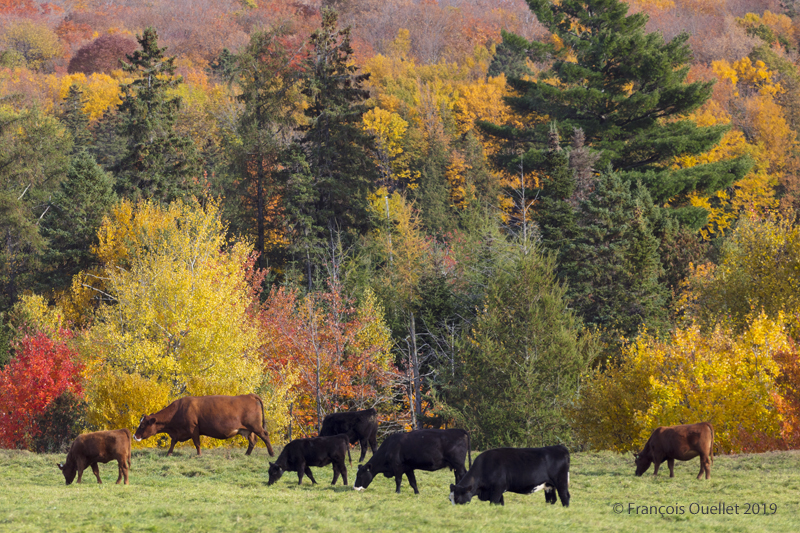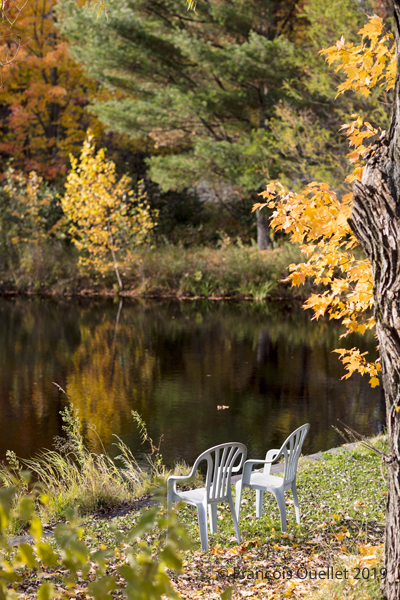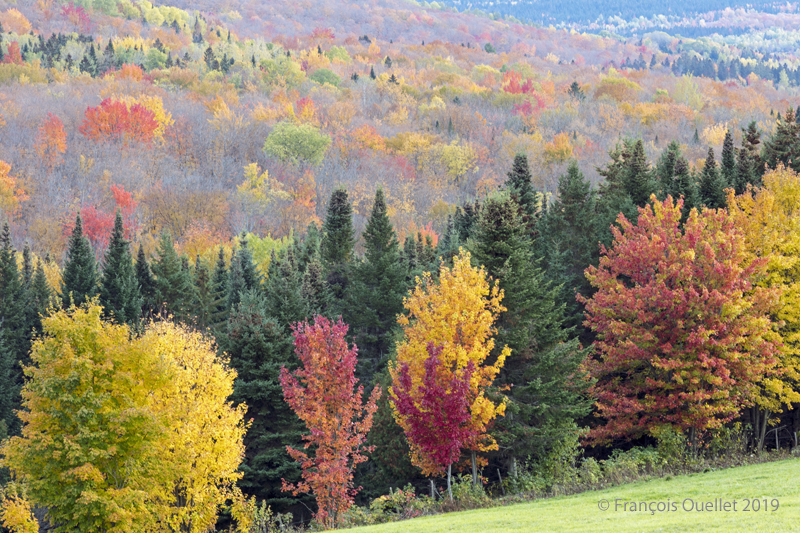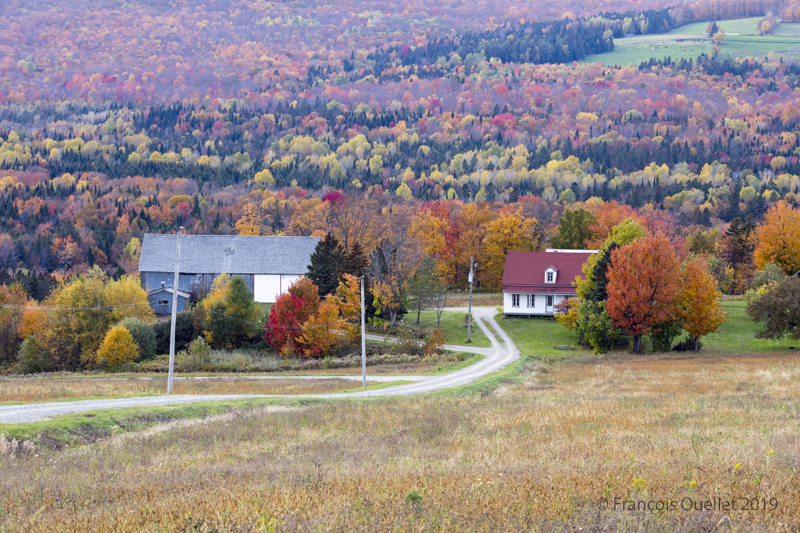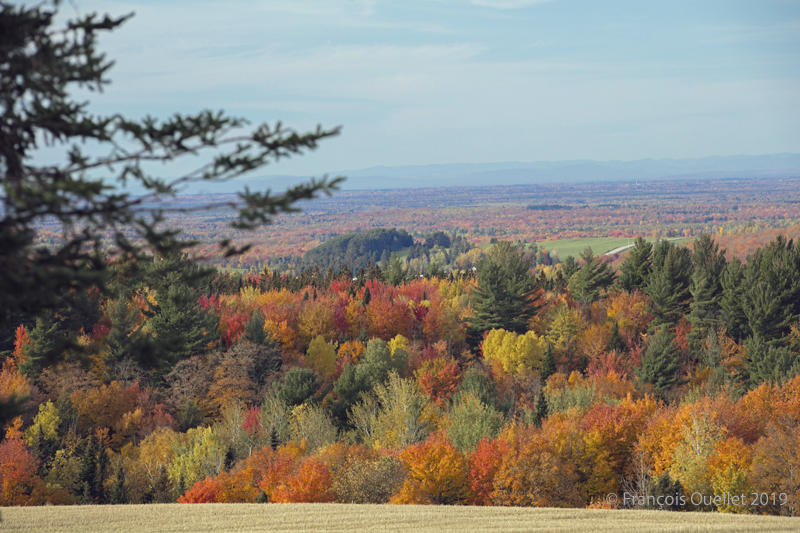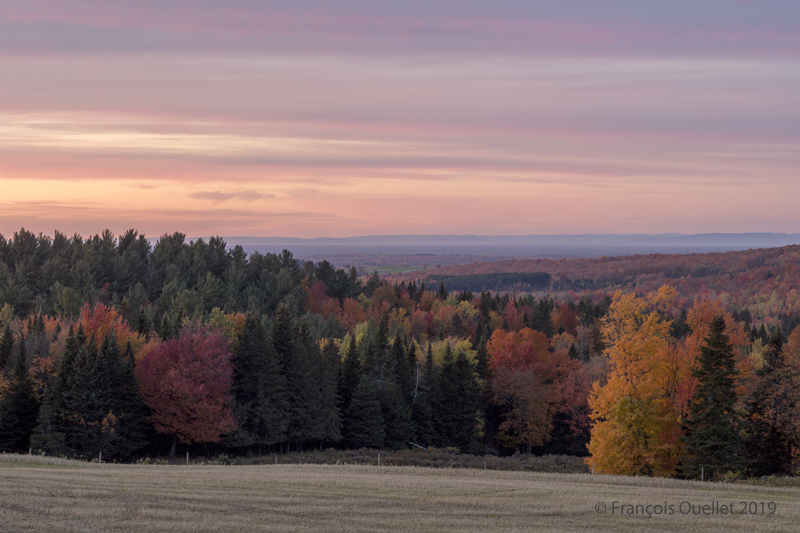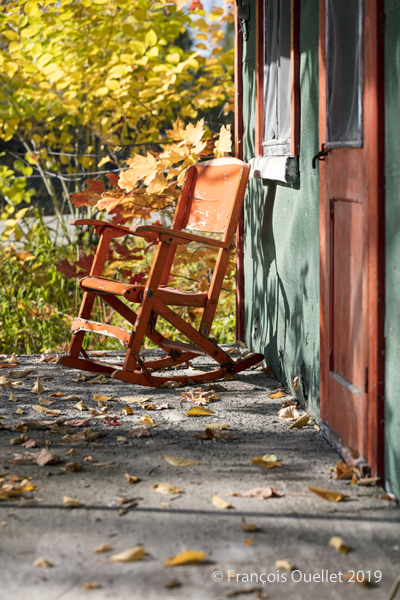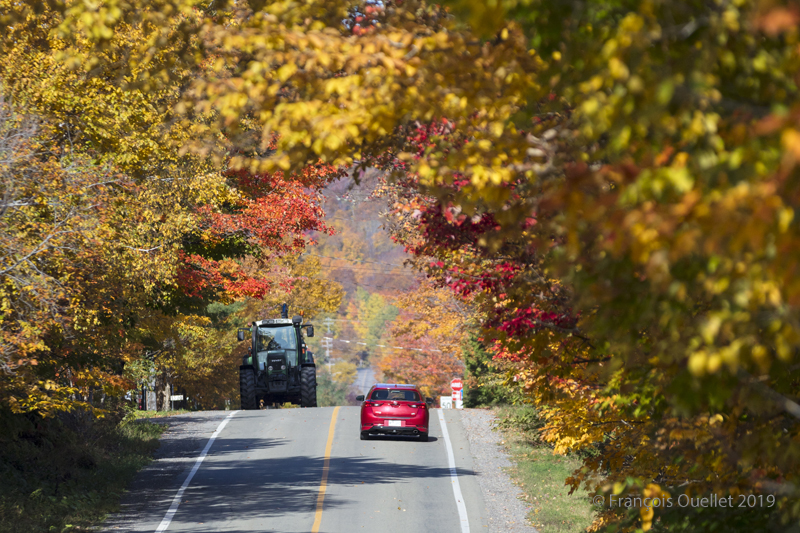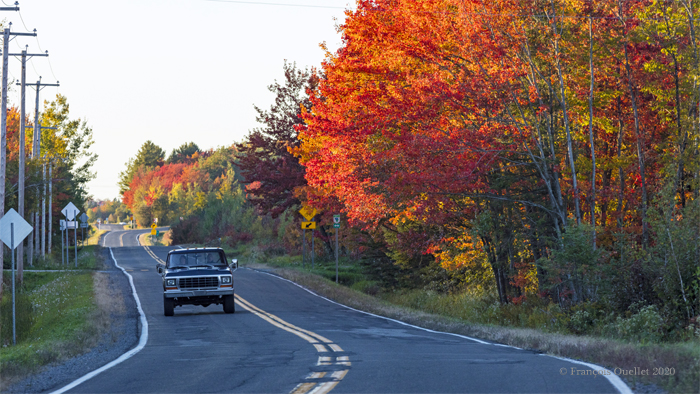
This photo was taken at the end of a beautiful day in the Chaudière-Appalaches region. The sun is almost on the horizon and is hitting the sides of the trees directly, further enhancing the autumn colors .
By this time, people are home having dinner and there are hardly any vehicles on the road. Rather than photographing an empty road, which certainly would have been a logical choice, I waited for a vehicle to show up and advance into the foreground of the photo. We are in the countryside and, luckily for me, the old Ford pick-up fitted perfectly in the landscape.
In terms of the photographic composition, the ideal position to capture the scene seemed to be near the curve, so as to use the white line of the road as a guideline leading to the subject of interest. The 16×9 format also allowed for a photo large enough to include the set of transmission line poles on the left, which itself was certainly as old as the pick-up. The latter was positioned according to the rule of thirds, without any compromises being necessary.
The posts on the left allowed a better framing of the subject. In the distance, the sun shines on the road and we assume there is a field on the left that lets the sun’s rays pass through.
The picture was taken with a Canon 5DS R full frame camera.
Click on the link for other photos of the province of Québec on my blog.
